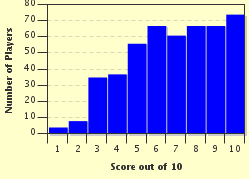Quiz Answer Key and Fun Facts
1. If you were heading out into the country to watch the Leonids, Perseids and Orionids, what would you be looking for?
2. What is the name of the hazy band of light that arcs across the clear night sky?
3. Which night sky phenomenon is caused by the collision of charged particles with the upper atmosphere?
4. What is the largest artificial object in Earth orbit, which can often be seen with the naked eye?
5. If your amateur astronomer friend is excited about seeing a "bolide", what have they seen?
6. Which sky phenomenon has been officially defined as "any airborne object which by performance, aerodynamic characteristics, or unusual features, does not conform to any presently known aircraft or missile type, or which cannot be positively identified as a familiar object."?
7. What is a common name for the rare phenomenon known scientifically as "paraselene" or "beside the moon"?
8. What do some people, in cultures all across the globe, claim to see in the full moon?
9. What is the term for the line between the light and dark areas of the Moon, a name that sounds like it came from Hollywood?
10. Which night sky phenomenon have names such as "West", "Hyakutake" and "C/2006 P1"?
Source: Author
wjames
This quiz was reviewed by FunTrivia editor
rossian before going online.
Any errors found in FunTrivia content are routinely corrected through our feedback system.


